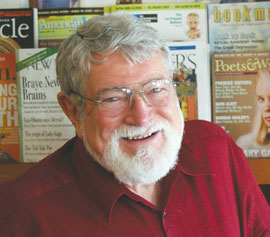Is AI Smarter than Donald Trump?
Jonathan Cloud January 26th, 2025
Something led me to start reading the text of Donald Trump’s Executive Order on energy, “Unleashing American Energy,” and I was astonished to discover an assault on an economic and scientific concept, the “social cost of carbon.”
The calculation of the “social cost of carbon” is marked by logical deficiencies, a poor basis in empirical science, politicization, and the absence of a foundation in legislation. Its abuse arbitrarily slows regulatory decisions and, by rendering the United States economy internationally uncompetitive, encourages a greater human impact on the environment by affording less efficient foreign energy producers a greater share of the global energy and natural resource market. Consequently, within 60 days of the date of this order, the Administrator of the EPA shall issue guidance to address these harmful and detrimental inadequacies, including consideration of eliminating the “social cost of carbon” calculation from any Federal permitting or regulatory decision. ((Source))
It’s been some years since Delton Chen and I worked on the real cost of carbon emissions on the planet, and I don’t remember all the arguments we made, except that we also distinguished a separate “risk cost of carbon” that took into account more than just the immediate deleterious effects of increasing greenhouse gases. But while we may not like estimating and reporting on the economic costs of increased carbon pollution, it’s just not useful to stick our heads in the sand.
And I very much wonder who came up with the idea of simply doing away with the concept. Continue Reading »

